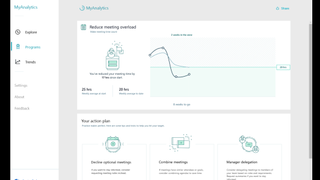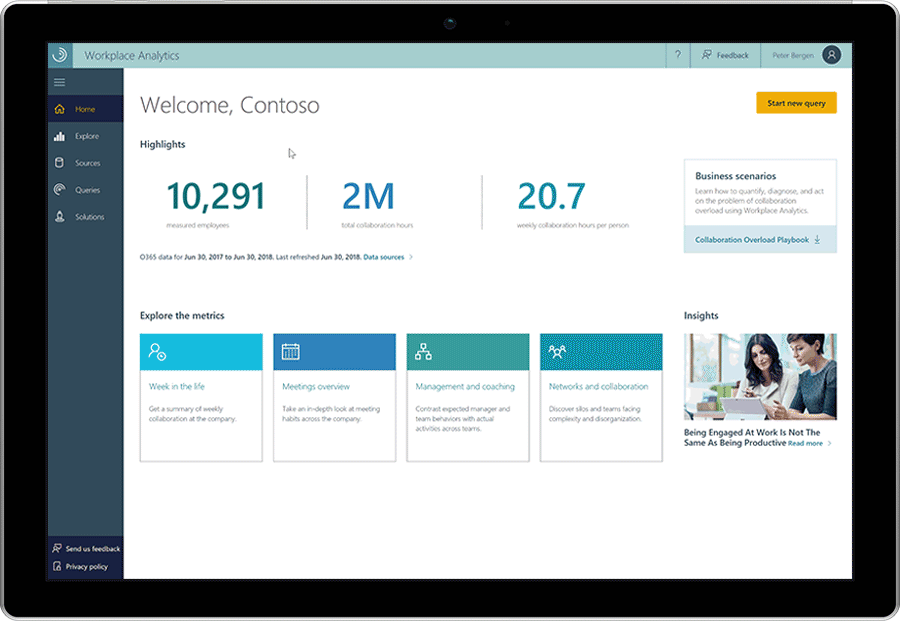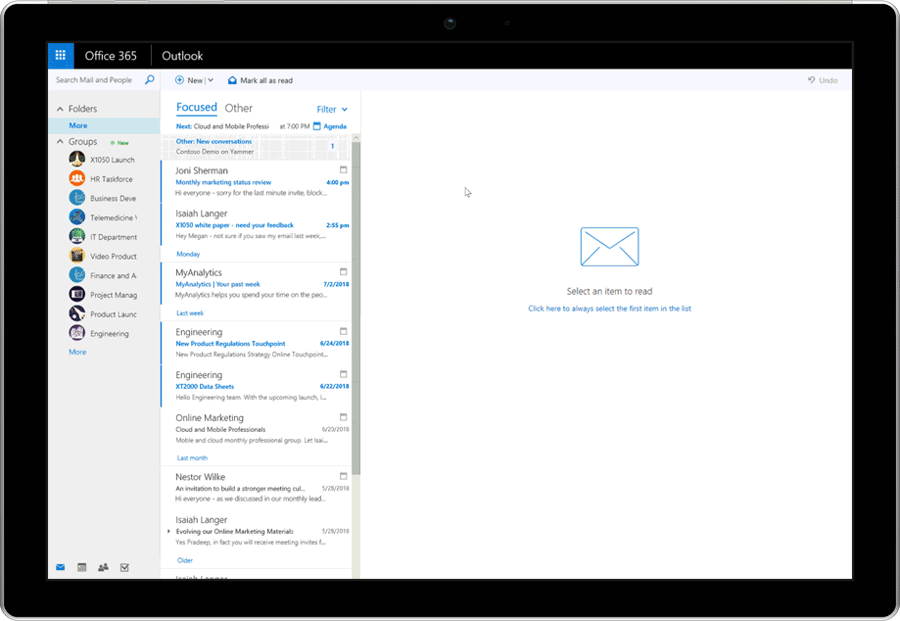Microsoft wants you to be happier at work
It's high time someone started using data analytics to make life better, rather than just busier

If you like meetings, you're probably a manager. To nigh on everyone else, they are pointless time sucks that we only go to on the orders of someone higher up in the corporate chain of command.
I accept that some meetings are useful: deciding who's going to do what, whether goals are being reached and if not, why not. But then there are the rest. Pointless meetings to prep for bigger meetings. The daily, weekly and monthly catch-ups so your manager can pretend they know what you're up to. And the inevitable meeting to figure out why no work is getting done.
Microsoft wants to help. Its new Workplace Analytics tool pulls in data from workers' Office 365 calendars, email and so on, analysing it to "identify collaboration patterns that impact productivity, workforce effectiveness, and employee engagement," according to a Microsoft blog post in suitable corporate speak. In the first set of tools to be released, that means the data will be analysed to understand if you're in too many meetings (you are, everyone is), have too little time for focused work (yup, that too), and if you work late too often (probably yes).
Those insights can then be used to set up "action plans" and "change programmes" to build better teamwork habits, Microsoft boldly claims, such as cutting meetings and reducing out-of-hours emails. It's easy to see how such data could be abused by HR and management to micromanage via calendar data surveillance.
Indeed, if an employee has too much to do, perpetually works late and has days filled with pointless meetings, there's an easy way to find out: listen to their complaints. But if the poor slog's bosses aren't keen on hearing them out, the hard numbers from Workplace Analytics might help change their minds or stop such a situation arising in the first place.

That's the idea behind the second clever workplace tool Microsoft has announced: MyAnalytics nudges. Microsoft notes that knowing you need to change and achieving it are two very different things, so it's built a system to nag us into becoming more productive employees with healthier work-life balances.
Get your third meeting invite for a day? A notification will suggest that you schedule in focused work time, so you can actually complete tasks rather than lose an entire day in meeting rooms. Or MyAnalytics will recommend you delegate a meeting to a coworker instead. (They'll appreciate that.) Draft an email out of hours, and MyAnalytics will suggest you send it in the morning, rather than risk interrupting someone else's home life. And it will use AI to remind you of tasks you said you'd do, but haven't yet, and of emails you've received but haven't read or responded to.
Get the ITPro. daily newsletter
Receive our latest news, industry updates, featured resources and more. Sign up today to receive our FREE report on AI cyber crime & security - newly updated for 2024.

MyAnalytics's nudges will soon land as an add-on to Outlook for Enterprise plan users, but I hope Microsoft extends them to anyone who'd like to use them.
Gmail already reminds me of emails I've failed to reply to, but I'd happily sign up for a smarter system that tells me I've booked too much for one day or stared at the screen for too long without a break, or that I need to file an invoice or do another easy-to-forget task. As a freelancer working from home, a digital nag would make up for the lack of an in-person manager to hassle me perhaps I don't miss the office as much as I think I do.
Managers who make use of such a system shouldn't forget that their staff are people, not machines to be managed by spreadsheets. People have different needs, but that's true without or without an AI nudge tool; helpful analytics don't negate the need for conversation and consideration.
Indeed, if used the right way, these tools could make getting the balance right a bit easier. And that's why I find MyAnalytics so intriguing. Yes, of course, its key aim is to boost workers' productivity, but it should also improve our work-life balance and make our work lives a little better. It's about time that technology started working for us, and helping us feel and live better, rather than just get more done.




